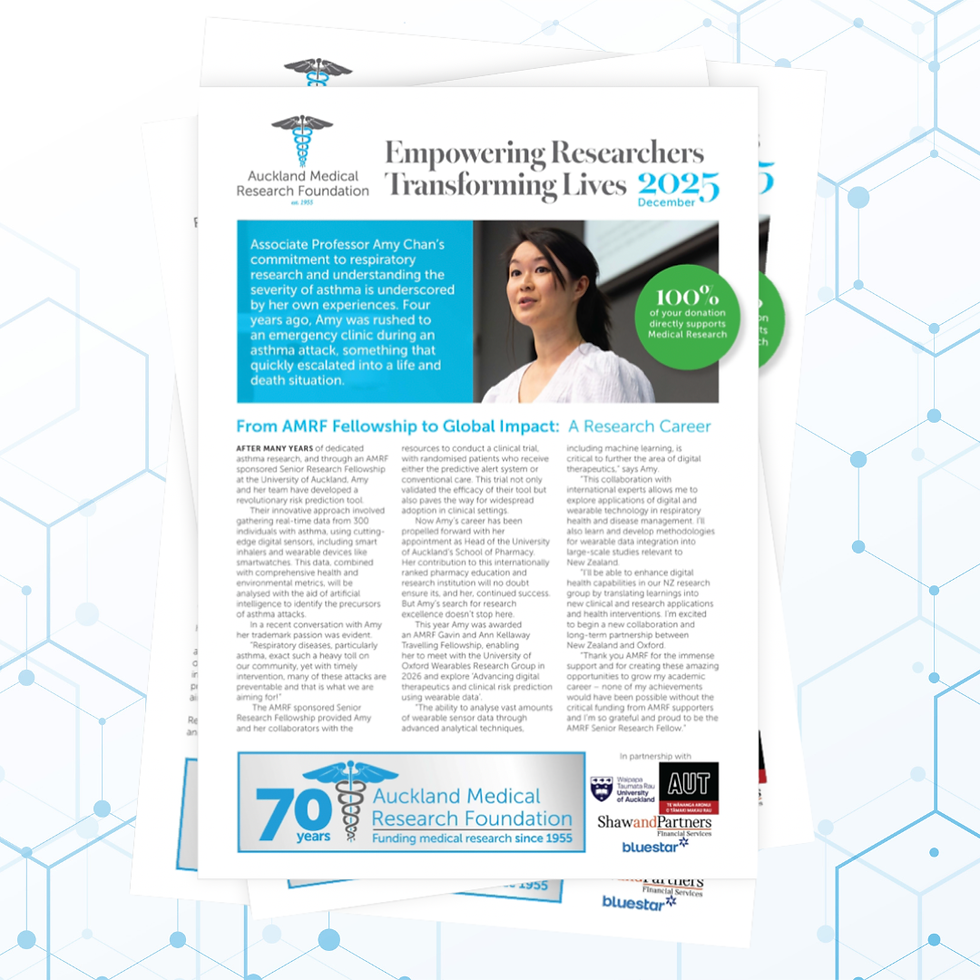Men's health month: Prostate cancer research
- AMRF
- Nov 1, 2020
- 2 min read
Updated: Dec 2, 2024
Prostate cancer is the most common malignancy diagnosed in New Zealand men. There are more than 3000 new cases detected each year, with the majority (60%) in men under 70 and around 650 deaths per year.
Ethnic disparities in outcomes are well documented for prostate cancer, and despite the fact that Māori men have lower incidence of developing prostate cancer when compared to non-Māori, Māori men have significantly higher mortality rates.
The New Zealand Ministry of Health (MOH) published guidelines for prostate cancer management in September 2015, but there continues to be a lack of New Zealand-specific research data required to evaluate the guideline's impact and effectiveness on prostate cancer screening or provide evidence for best practice.

Dr Bashar Matti's Masters and PhD research, funded by Auckland Medical Research Foundation, will provide this important New Zealand-specific data.
"I'm developing a New Zealand-specific prostate cancer risk calculator, which accounts for the ethnic diversity of our communities."
"We've already found in our preliminary work that prostate specific antigen (PSA) testing is much more common than the MOH anticipated. Much more funding and resources need to be allocated to individualise PSA screening in order to improve equity and patient outcomes."
He says, "Because New Zealand lacks an organised prostate cancer screening program with dedicated monitoring and quality assurance services, like the existing breast or bowel cancer screening programs, the distribution of the prostate cancer screening pattern, though high, has been inequitable, with Māori men being significantly disadvantaged."
"We have discovered there are clear ethnic differences in PSA age-adjusted reference limits, so the current interpretations of 'normal' PSA levels cannot be a 'one-size fits all' approach."
Dr Matti's work in the Department of Surgery at the University of Auckland is world-leading and will benefit patients of all ethnicities across New Zealand. He says, "It is so important to improve screening services for prostate cancer in New Zealand because this is frequently a manageable cancer, with timely diagnosis. My data will help guide the development of this program, ensuring men get the individualised service they need and improving patient outcomes.
"Thanks to the AMRF and its donors for their support so I can be a part of this research team dedicated to equity- and evidence-based policies for prostate cancer testing and treatment in New Zealand."



